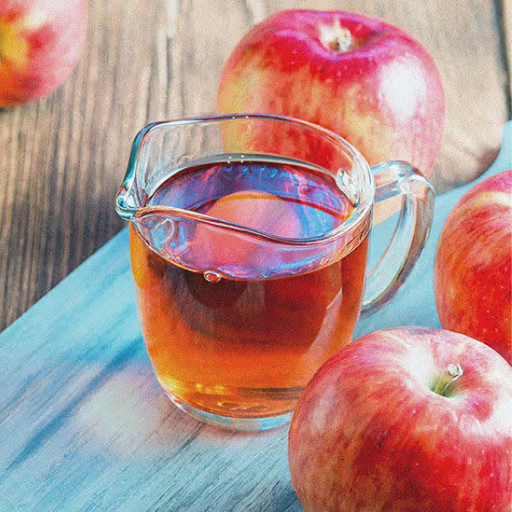Why Consider Apple Cider Vinegar Substitutes?
Apple cider vinegar (ACV) has long been a popular natural remedy, touted for its numerous health benefits, including potential weight loss, improved digestion, and blood sugar regulation. However, it’s not always the right choice for everyone. Some individuals find its strong, tangy taste off-putting, while others may experience digestive discomfort due to its high acidity. Additionally, dietary restrictions or a preference for gentler ingredients can make finding a suitable alternative a priority.
Fortunately, there are several apple cider vinegar substitutes that offer similar benefits while addressing these challenges. From lemon juice to other types of vinegar, these alternatives can fit seamlessly into recipes, support weight management efforts, and provide additional nutritional advantages. In exploring these substitutes, you’ll find that making a simple switch can improve both your experience and the overall effectiveness of your health routine.
Top Apple Cider Vinegar Substitutes and Their Benefits
When looking for effective substitutes for apple cider vinegar, several options provide comparable health benefits while accommodating different tastes and dietary needs. Below are some of the most popular alternatives and what they bring to the table:
- Lemon Juice:
Lemon juice is one of the most commonly used replacements for apple cider vinegar. Its natural acidity and vitamin C content make it an excellent choice for those seeking similar health effects. Lemon juice can help boost digestion, support immune function, and add a bright, tangy flavor to recipes without the strong vinegar-like taste. - White Vinegar:
A pantry staple, white vinegar is a convenient and cost-effective substitute. While it lacks some of the enzymes found in raw apple cider vinegar, it still delivers comparable acidity levels, making it useful in recipes that rely on a sharp, clean flavor. It’s also widely available and works well in marinades, dressings, and pickling. - Rice Vinegar:
Known for its mild and slightly sweet flavor, rice vinegar offers a gentle alternative to apple cider vinegar. Commonly used in Asian cuisine, it can be easily incorporated into sauces, stir-fry dishes, and sushi rice preparations. Rice vinegar also provides a subtle acidity that complements a wide range of dishes without overpowering them. - Red Wine Vinegar:
For those looking for a substitute with a more robust flavor, red wine vinegar is an excellent option. While its taste is more complex, it still provides the acidity needed for recipes and can be used in salad dressings, marinades, and reductions. Additionally, red wine vinegar contains antioxidants from the wine-making process, adding a potential health boost. - Balsamic Vinegar:
Although it has a sweeter profile, balsamic vinegar can sometimes serve as a stand-in for apple cider vinegar. It works particularly well in dressings and glazes. Balsamic vinegar also contains trace amounts of minerals and antioxidants, making it a flavorful and nutritious choice.
How These Substitutes Compare:
When choosing the best alternative, consider your specific health and culinary goals. Lemon juice offers high vitamin C content, while rice vinegar provides a more delicate taste. White and red wine vinegars are versatile and deliver strong acidity, ideal for preserving or flavoring food. By understanding these benefits, you can select the substitute that fits seamlessly into your recipes and supports your health objectives.
How to Use Apple Cider Vinegar Substitutes

How to Use Apple Cider Vinegar Substitutes
When incorporating apple cider vinegar substitutes into your recipes, it’s important to understand how to measure and balance flavors to ensure the best results. Each substitute offers a unique taste profile and acidity level, so the key lies in making the right adjustments.
Measuring Substitutes in Recipes:
- Lemon Juice: Use a 1:1 ratio when replacing apple cider vinegar. For instance, if a recipe calls for one tablespoon of apple cider vinegar, you can use one tablespoon of lemon juice.
- White Vinegar: Start with a slightly smaller amount than apple cider vinegar, as white vinegar can be sharper. Adjust to taste as you go.
- Rice Vinegar: With its milder flavor, rice vinegar works well in equal parts. You might need a bit more if you prefer a slightly tangier taste.
- Red Wine Vinegar: This substitute is more robust and acidic. Use a little less than the required amount of apple cider vinegar at first, then increase as needed.
Adjusting Flavor Profiles:
- Lemon juice can add a bright citrus note that might not suit every dish, so consider combining it with a neutral vinegar or a touch of honey to round out the flavor.
- Rice vinegar’s mild sweetness makes it ideal for Asian-inspired dishes. If you need a stronger tang, pair it with a small splash of white vinegar.
- Red wine vinegar’s bold flavor can dominate delicate recipes. To mellow it out, mix it with water or a neutral-tasting vinegar.
Best Uses for Substitutes:
- Dressings: Lemon juice and rice vinegar create light, refreshing dressings. Mix them with olive oil, a pinch of salt, and a drizzle of maple syrup for balance.
- Cooking: White vinegar works well in pickling and stews where a straightforward acidic punch is needed.
- Drinks: For health tonics, lemon juice mixed with warm water and a touch of honey can be a gentle, soothing alternative to apple cider vinegar.
By understanding these nuances, you’ll be able to seamlessly replace apple cider vinegar in your favorite recipes without sacrificing flavor or benefits.
The Nutritional Impact of Apple Cider Vinegar Alternatives

The Nutritional Impact of Apple Cider Vinegar Alternatives
When it comes to nutritional benefits, many substitutes for apple cider vinegar hold their own. While apple cider vinegar is known for its acetic acid content, which can help support digestion and blood sugar regulation, other options offer unique advantages that may suit different health needs.
Lemon Juice:
Lemon juice is a natural source of vitamin C, an antioxidant that supports immune function and skin health. By using lemon juice as a substitute, you can add a dose of fresh citrus flavor while boosting your vitamin intake. Some experts suggest that lemon juice’s acidity can aid in digestion and provide a similar cleansing effect to apple cider vinegar.
White Vinegar:
Although it lacks the beneficial enzymes found in unfiltered apple cider vinegar, white vinegar offers a straightforward, low-calorie acidic profile. Its simplicity can be a positive for those who need a neutral option without added sugars or additional compounds.
Rice Vinegar:
Rice vinegar, particularly the unseasoned variety, contains trace amounts of amino acids and antioxidants. While it’s milder in flavor, it can still contribute to digestive health and enhance nutrient absorption. In some cases, rice vinegar’s subtle sweetness can also encourage more frequent use, ensuring consistent health benefits over time.
Balsamic Vinegar:
For those who prefer a richer taste, balsamic vinegar includes small amounts of polyphenols and antioxidants. While it’s slightly higher in natural sugars, it offers a flavorful alternative that can still contribute to overall health. The antioxidants present in balsamic vinegar have been linked to improved heart health and better metabolic function.
Nutritional Considerations:
It’s important to note that the nutritional profiles of these substitutes can vary based on the type and quality of the vinegar or juice used. Opt for organic, unprocessed options when possible to maximize health benefits. Additionally, pairing these substitutes with a balanced diet—rich in fruits, vegetables, lean proteins, and whole grains—will help amplify their positive effects.
By exploring these alternatives, you can maintain or even enhance the nutritional value of your recipes, ensuring that you continue to reap health benefits without relying solely on apple cider vinegar.
Choosing the Right Substitute for Your Needs
Selecting the most suitable apple cider vinegar substitute often depends on your personal health goals, taste preferences, and the type of dish or recipe you’re preparing. Since each substitute has unique properties, considering these factors can help you make the best choice.
Taste and Flavor Profile:
If you find apple cider vinegar too sharp or tangy, a milder option like rice vinegar or lemon juice might be more appealing. Rice vinegar’s subtle sweetness can complement salads and stir-fries, while lemon juice provides a fresh, citrusy note that pairs well with seafood and dressings. Balsamic vinegar, on the other hand, delivers a richer and slightly sweet flavor, making it a favorite for glazes and marinades.
Dietary Goals and Nutritional Content:
For those prioritizing nutritional benefits, lemon juice’s high vitamin C content makes it a strong contender. This antioxidant-rich substitute can enhance immune function and support skin health. Similarly, balsamic vinegar, known for its polyphenol content, may offer heart health benefits and help regulate blood sugar levels. While white vinegar lacks these added nutrients, it remains a viable, low-calorie option for basic recipes.
Availability and Convenience:
When choosing a substitute, availability and ease of use play a significant role. Lemon juice is widely accessible and versatile, making it a go-to choice for many households. White vinegar, often a pantry staple, is another convenient alternative. If you prefer a specialty option like rice vinegar or balsamic vinegar, ensure you have it on hand for the specific dishes you plan to prepare.
Experimenting to Find the Right Fit:
Ultimately, trial and error is the key to finding the perfect substitute for your needs. Start with small quantities and adjust the amounts to achieve the desired flavor and acidity level. Over time, you’ll develop a preference for certain substitutes in specific recipes, ensuring that you can enjoy the benefits of apple cider vinegar alternatives without compromising taste or nutritional value.
